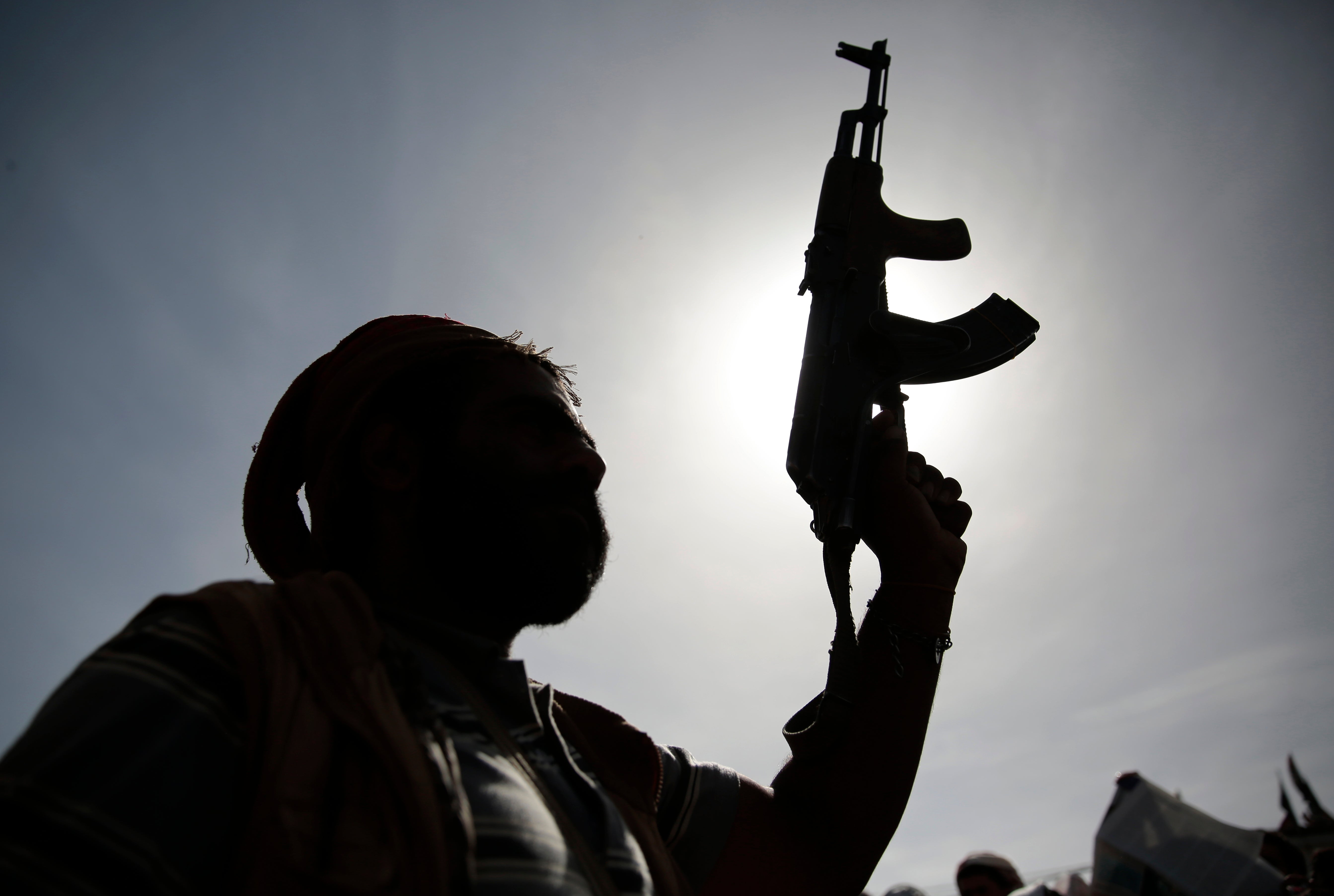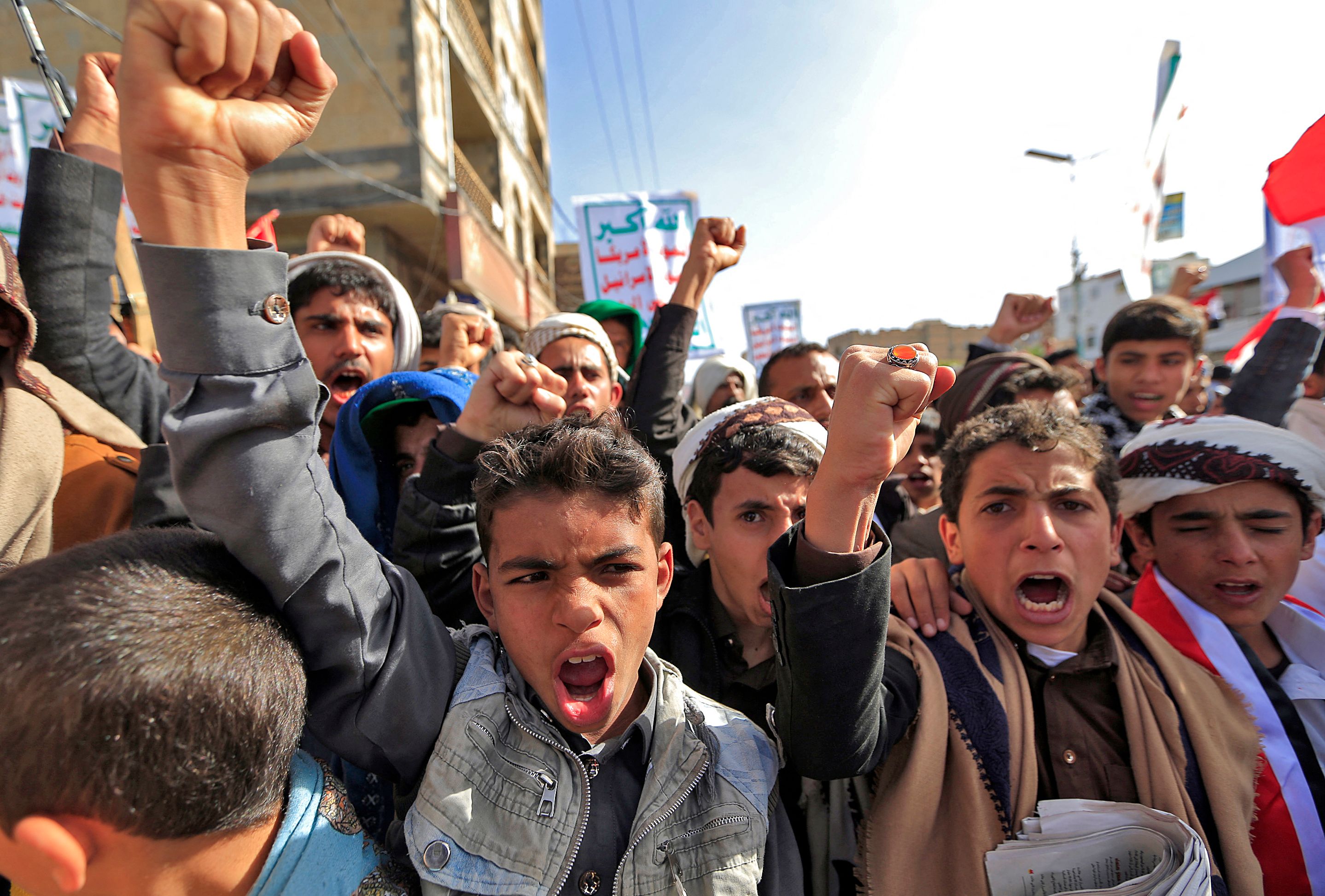Yemen the topic of secret talks between Saudi Arabia and Iran
The talks were apparently brokered by the Iraqi PM

Your support helps us to tell the story
From reproductive rights to climate change to Big Tech, The Independent is on the ground when the story is developing. Whether it's investigating the financials of Elon Musk's pro-Trump PAC or producing our latest documentary, 'The A Word', which shines a light on the American women fighting for reproductive rights, we know how important it is to parse out the facts from the messaging.
At such a critical moment in US history, we need reporters on the ground. Your donation allows us to keep sending journalists to speak to both sides of the story.
The Independent is trusted by Americans across the entire political spectrum. And unlike many other quality news outlets, we choose not to lock Americans out of our reporting and analysis with paywalls. We believe quality journalism should be available to everyone, paid for by those who can afford it.
Your support makes all the difference.Recent secret talks reportedly held between Iran and Saudi Arabia focused on the war in Yemen, and ways to end a conflict that is one of the most dire humanitarian disasters in the world and poses a lingering security threat to the Saudi kingdom.
An unnamed Iranian official, cited by local media, confirmed that the talks in Baghdad, first reported on Sunday by the Financial Times, had taken place.
Another scholar told The Independent that Iraqi interlocutors had also referred to the 9 April talks reportedly brokered by the Iraqi prime minister, Mustafa al-Kadhimi.
The FT reported that Saudi intelligence chief Khalid al-Humaidan was among the participants. But unnamed Saudi officials denied in published reports that any such talks had taken place.
On Monday, a hardline Iranian news agency quoted an “informed source” as saying the talks did take place and centred on the war in Yemen, where Tehran and Riyadh back opposing armed groups.
“These two countries have held talks on the issue of Yemen,” said the source quoted by the Iranian news agency Young Journalists Club, claiming that Saudi Arabia was seeking to end its six-year military engagement against Iranian-backed Houthi, or Ansarullah, rebels in the Arabian peninsula nation. “Iran noted that Yemen has its own owners and Saudi Arabia must talk with Yemenis and Ansarullah themselves,” the source was quoted as saying.
“As Riyadh is looking for progress in Yemen, engaging directly with the Iranians rather than through third parties is probably more productive,” said Sanam Vakil, deputy director of the Middle East and North Africa programme at Chatham House.
Saudi Arabia is eager to reopen Yemen’s Hodeida port while stopping the Houthi offensive against Marib province, which had been among the few relatively peaceful areas of the country. Riyadh is also anxious to halt incessant Houthi drone and rocket attacks on Saudi infrastructure.
“The big question is does Iran have the ability to influence the Houthis on these issues,” said Ms Vakil. “We also don’t have a very clear idea of what the Saudis are able to offer the Iranians.”
Iran’s foreign ministry spokesperson, Saeed Khatibzadeh, said Tehran would embrace any talks between the two countries. “Iran has always welcomed talks with the Saudi kingdom and considers them beneficial for the people of the two countries,” he told reporters on Monday, declining to confirm or deny that any talks had taken place.
The purported talks would mark something of a diplomatic breakthrough. Relations between the two conservative autocratic regimes have long been tense and rach purports to represent the interests of the two main branches of Islam. Diplomatic ties were severed in 2016 after mobs stormed Saudi diplomatic missions in Iran following the execution of a Shia cleric by the kingdom.
Tensions mounted under the administration of Donald Trump, who had warm ties with the leadership in Riyadh, abandoned a deal on Iran’s nuclear programme negotiated by his predecessor in the White House, and launched an ultimately failed campaign of “maximum pressure” meant to force Tehran to submit to US demands.

But the ongoing attempt to revive the Iranian nuclear deal and a possible diplomatic rapprochement between the US and Tehran may prompt Saudi Arabia and other countries in the region to reassess their positions. The United Kingdom, France, Germany, Russia, and China are all signatories to the deal, called the Joint Comprehensive Plan of Action (JCPOA).
Saudi Arabia also appears eager to end its costly six-year engagement in Yemen, where it is entangled in a bloody stalemate.
The Saudi crown prince and de factor ruler of the kingdom, Mohammed bin Salman, met British envoy Edward Lister on Monday, the state-run Saudi news agency reported. Saudi Arabia, which buys western weaponry, has insisted that it be consulted on any revival of the JCPOA.
Join our commenting forum
Join thought-provoking conversations, follow other Independent readers and see their replies
Comments